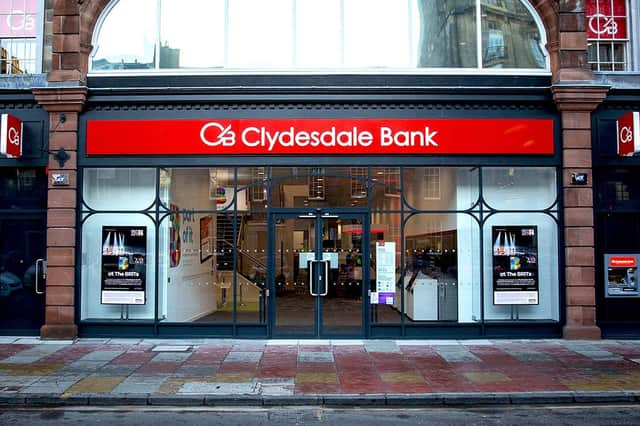Competition watchdog steps in over Clydesdale Bank loan breaches


The Competition and Markets Authority (CMA) found that Clydesdale, owned by Glasgow-headquartered Virgin Money, was in breach of rules aimed at preventing the practice known as “bundling”.
The CMA said Clydesdale had required customers who were running their business through a personal current account with the bank to also open a business current account in order to obtain a loan through the UK government’s Bounce Back Loan Scheme.
Advertisement
Hide AdAdvertisement
Hide AdThe CMA said the practice restricts competition and limits choice as businesses could be stuck with paying for a business current account that does not meet their needs.
The announcement follows similar recent action against Bank of Scotland-owner Lloyds Banking Group.
The CMA said it was aware that the affected Clydesdale customers would not initially be charged for the business current accounts.
“However, small business customers may have kept these accounts open for longer than the initial fee-free period rather than opening a more suitable account with another provider,” it added.In December, Clydesdale voluntarily wrote to all affected customers to inform them that they are not required to retain the Clydesdale business current account for the whole duration of the loan, and offered them the option of switching to a fee-free loan servicing account.
In total 55 Clydesdale customers and 112 Yorkshire Bank customers were affected.
A Clydesdale Bank spokesperson said the issue had arisen as the applicants concerned had only set their businesses up recently so it had been unable to process the necessary fraud and money laundering checks.
“To help make sure they swiftly received the loan funds, we asked them to open a business current account to let us progress their application,” they explained.
The CMA said that given the Bounce Back Loan scheme provides critical support to small businesses, it regards even minor breaches as significant.
Advertisement
Hide AdAdvertisement
Hide AdEight of the UK’s largest banks are subject to legal undertakings prohibiting bundling.
Adam Land, a CMA senior director, said: “The scheme provides critical support to small businesses during the pandemic. We are acting to ensure that the large banks do not restrict the choices of small businesses by bundling loans and business current accounts. We are pleased that Clydesdale is now taking the steps necessary to become compliant.”
In a trading update earlier this week Virgin Money said lending under bounce back loans increased by 14 per cent in the final three months of 2020 as new lockdowns and restrictions saw firms take on more debt to see them through the winter.
Facilities under the larger Coronavirus Business Interruption Loan Scheme (CBILS) and Coronavirus Large Business Interruption Loan Scheme (CLBILS) rose 19 per cent.
The group also said cautious customers were avoiding taking out personal loans and instead turning to depositing their cash.
Virgin Money added a further charge of £49 million to the cost of compensation over the PPI scandal following a higher level of internal reviews into complaints leading to payouts.
A message from the Editor:Thank you for reading this article. We’re more reliant on your support than ever as the shift in consumer habits brought about by coronavirus impacts our advertisers. If you haven’t already, please consider supporting our trusted, fact-checked journalism by taking out a digital subscription: www.scotsman.com/subscriptions
Comments
Want to join the conversation? Please or to comment on this article.